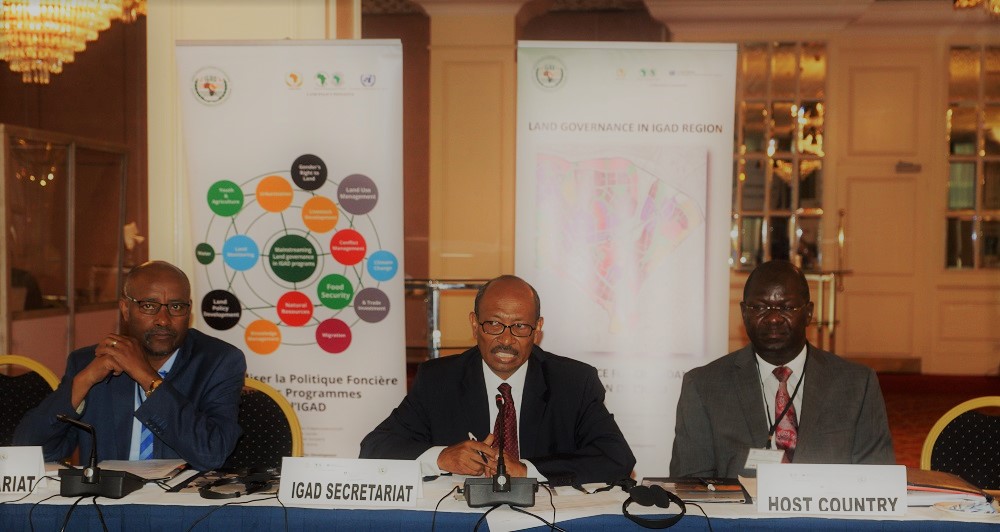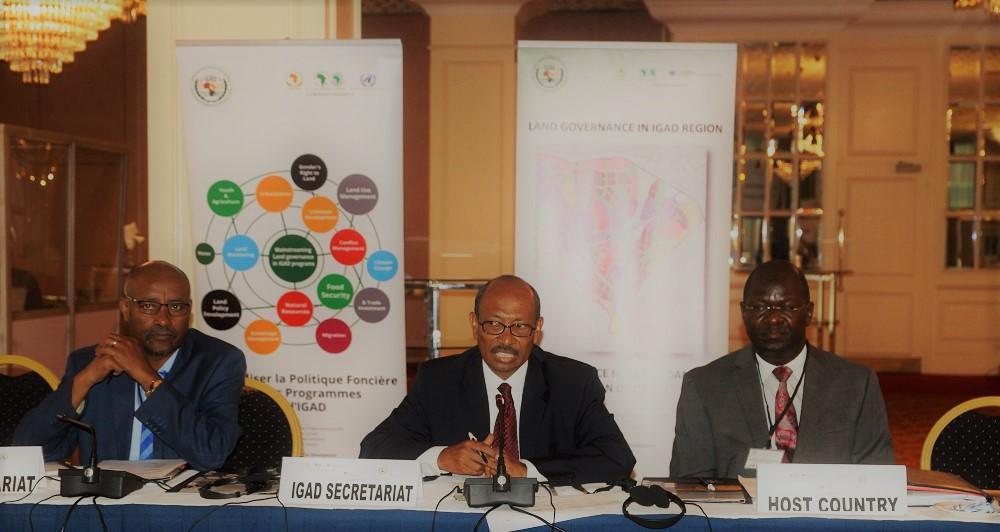16-10-2018, Nairobi (Kenya): The Directors in charge of land management and agriculture at the Member States of Intergovernmental Authority on Development (IGAD) this morning kick started a one-day workshop aimed at preparing for the Ministerial level meeting on mainstreaming land governance to be held in Nairobi on October 18th.

The Meeting of Directors responsible for Lands and Agriculture is intended to bring them up to speed with the work done by the technical staff of Member States as well as the IGAD Secretariat over the past two years. Specifically, the Directors are to be oriented to the Land governance Strategy and the Strategy on Mainstreaming Land governance in the IGAD region with the aim of preparing for the meeting of the Ministers to endorse the two strategies.
The Main objective of the meeting is to refine and adopt the IGAD Land governance Strategy and the Mainstreaming Land Governance Strategy in preparation of the Ministerial Meeting where it will be presented for endorsement.
The Director of Agriculture and Environment Division-IGAD, Mr. Mohamed Moussa,
Furthermore, this is an initial meeting in which the Directors of Land Management and the Directors of Agriculture are interfacing and discussing matters of mutual interest in as far as mainstreaming land governance is concerned. These discussions will inform further programing of the regional land governance project.
The AU Declaration on Land Issues and Challenges in Africa mandates the RECS to appropriately capture and address issues of land policies within their respective common agricultural policy framework. IGAD with the participation of its Member States developed two strategy documents: a) The IGAD Land governance Strategy b) A strategy on Mainstreaming Land Governance in IGAD Programs and those of its Member states.
Although the Strategy was developed and validated in 2016, it is important for it to be endorsed by the Ministers responsible for Lands and Ministers responsible for Agriculture to enable it be effectively implemented.

